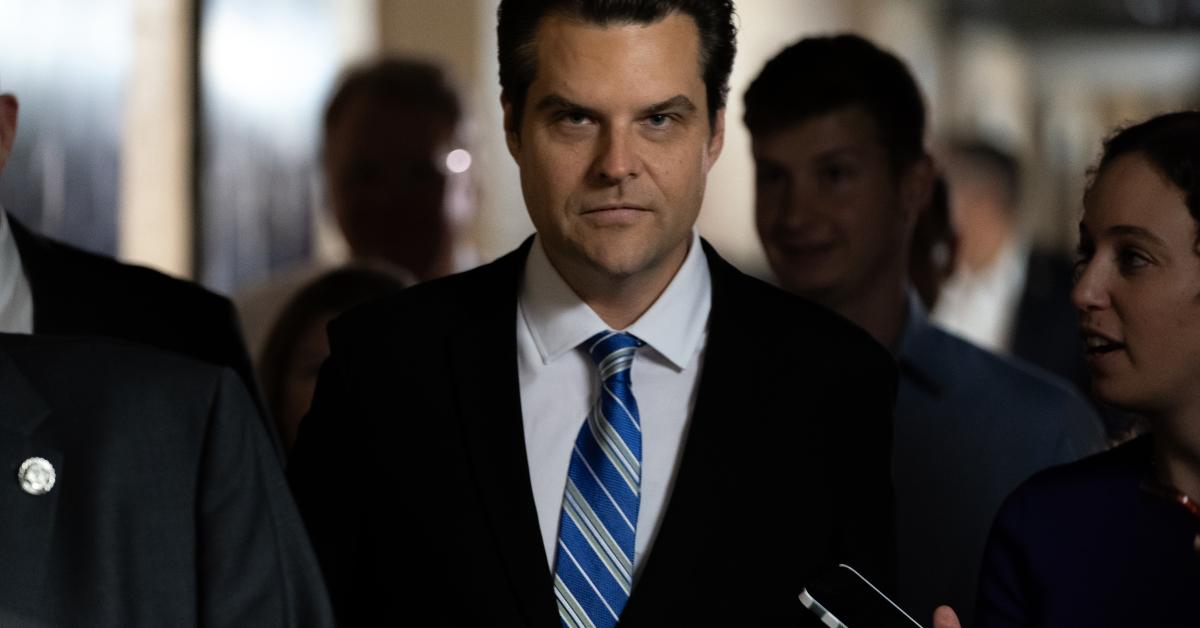We support our Publishers and Content Creators. You can view this story on their website by CLICKING HERE.

President-elect Donald Trump’s cabinet picks have drawn outcry from within the Senate GOP, serving to highlight the lawmakers who stand in the way of his agenda when he enters the White House. Trump famously struggled to win over the Senate Republicans in his first term, with many voting to impeach him after Jan. 6. The late Sen. John McCain, R-Ariz., with whom Trump regularly clashed, torpedoed the party’s efforts to repeal the Affordable Care Act.
Now, with a popular vote mandate and majorities in both chambers, Trump aims to follow through on his campaign promises to overhaul and restructure the government, with the first step being the confirmation of his cabinet picks to manage the task. At least three of his major picks, however, have drawn considerable backlash from within the Republican conference and prompted discussion of recess appointments to install them in light of prospective failures on the Senate floor.
Among Trump’s three most contentious picks are Attorney General-designate Matt Gaetz, Health and Human Services Secretary-designate Robert F. Kennedy Jr., and Secretary of Defense-designate Pete Hegseth. The trio of unconventional nominees have called for comprehensive reforms to their respective departments, roiling career officials and prompting threats of mass resignations should they be confirmed.
Though such an action would likely be pleasing to Trump and would advance his agenda considerably, the prospect of sweeping changes to executive agencies does not appear to sit well with some establishment Republicans. Thus far, a handful of Republicans have publicly confirmed their opposition to one or more of Trump’s nominees, making it unclear whether they could secure a confirmation by floor vote. The president-elect has floated the possibility of using recess appointments to install his cabinet, though the new Republican leader, Sen. John Thune, R-S.D., has been hesitant to commit to doing so.
Without confirming his preferred nominees, Trump is likely to struggle to implement his agenda. Blocking those appointments would send a strong signal about a lawmaker’s inclinations toward his efforts. Here’s a look at lawmakers who seem hesitant to back his nominees.
Mitch McConnell
No longer in leadership, McConnell retains considerable influence in the conference. His traditional, largely hawkish approach to foreign policy is likely to pit him against Hegseth. He does not appear to have commented on Gaetz specifically.
Of controversy online is a New Yorker reporter’s now-deleted X post alleging that McConnell had insisted there would be no recess appointments to install Trump’s picks. The post drew backlash from Republican senators, including Utah’s Mike Lee, who highlighted that McConnell no longer led the conference. Sen. Rick Scott, R-Fla., moreover, rushed to assert that such appointments would take place.
Susan Collins
Another Republican who voted to impeach Trump, Maine’s Collins is likely wary of Trump’s cabinet selections after backing Supreme Court Justices Amy Coney Barrett and Brett Kavanaugh, both of whom voted to overturn Roe v. Wade.
Collins said she was “shocked” to learn of Gaetz’s nomination, saying “if the nomination proceeds, I’m sure that there will be an extensive background check by the FBI and public hearings and a lot of questions asked,” according to WMTV.
Of Kennedy, she has called some of his positions on vaccines “alarming.” She did, however, indicate that it was “premature” for her to take a firm position on Trump’s nominations ahead of the confirmation hearings.
Lisa Murkowski
The Alaska senator voted to impeach Trump after Jan. 6 and declined to support him in 2024. She has expressed dismay at Gaetz’s nomination, indicating she would not support his confirmation, and has expressed surprise at Hegseth’s nomination. “I don’t think it’s a serious nomination for attorney general. We need to have a serious attorney general,” she said of Gaetz.
Of Hegseth, she did not opine on his qualifications, but told reporters “I’m just surprised, because the names that I’ve heard for secretary of defense have not included him.”
John Cornyn
A vocal Trump critic, Texas’ Cornyn changed his tune while running for Senate leadership and said he would speedily confirm Trump’s nominees. He lost out to Thune for leadership and has been critical of Gaetz. He has further requested that the House Ethics Committee release the findings of its investigation into Gaetz, though House Speaker Mike Johnson has asked the panel not to do so in light of his resignation from Congress.
Cornyn has indicated he doesn’t want “any limitation at all” on the Senate’s consideration of Gaetz’s nomination and has hinted that he would consider issuing a subpoena for the report.
He has, however, backed Hegseth, saying “[t]he Pentagon needs shaking up. The status quo is dangerous.”
On Kennedy, he has taken a reserved approach, telling Politico that “I don’t have any preconceived notion about it.”
Thom Tillis
The North Carolina senator has often been willing to break from the party line and from Trump himself. Sitting on the Judiciary Committee, he will likely play a key role in advancing Gaetz’s nomination and has expressed openness to his confirmation.
“I barely know Gaetz. All I know is that he likes picking fights on social media,” he told reporters. “He’ll have to deal with that in committee. But I don’t know his background. I’m going to look at it and give him a fair hearing.”
Of Hegseth, he seemed more supportive, noting he has a “distinguished time in the military” and opining that “he’s just got to go through the vetting process and withstand what I’m sure is going to be an interesting murder board in the Senate Armed Services Committee.”
Markwayne Mullin
The Oklahoma senator has worked to brand himself as a Trump ally and represents a state where the president-elect won every county. While he has defended Trump’s nomination of Hegseth and explicitly stated that he would support him, Mullin has joined a group asking for the findings of the House Ethics Committee’s investigation into Gaetz.
Mullin has long been a critic of Gaetz, commenting publicly on multiple occasions about Gaetz’s personal behavior. Speaking on “Meet the Press”, Mullin said it was “no secret” that he and Gaetz had “had our differences” but that he would “give him a fair shot” and trusted Trump’s judgment.
The Oklahoma Republican appears to be in Trump’s good graces despite his reservations, however. The president-elect on Monday commended him on a “great job” in an interview on Fox News, calling him a “great fighter.”
On Tuesday, he seemingly expressed further openness to Gaetz, saying Trump’s “picks have been maybe ‘unconventional,’ but we hired an unconventional president. The American people wanted that.”
Conservative pressure
House conservative firebrands and online figures have rallied behind Trump’s picks, asserting that it is Trump, not the Senate, who holds the mandate from the people. Several have floated primary challenges to Senate Republicans who oppose key nominees.
“If Senate Republicans don’t vote to confirm President Trump’s nominees, they’ll have to contend with a president given a historic mandate by the American people—and [Elon Musk] and his new PAC. Good luck winning that fight,” posted Rep. Marjorie Taylor Greene, R-Ga.
“If you voted for Garland and won’t vote for Gaetz, you will face an immediate primary challenge,” Turning Point USA founder Charlie Kirk posted on X.
“Any republican who obstructs or blocks Matt Gaetz’s confirmation will receive the full political force I can muster up to make sure you lose your next primary,” posted podcast host Tim Pool. “And I know I’m not the only one who feels this way.”

 Conservative
Conservative  Search
Search Trending
Trending Current News
Current News 





